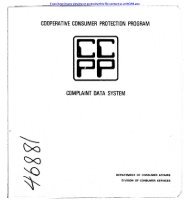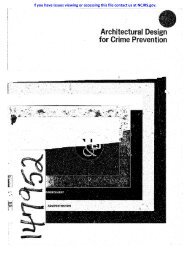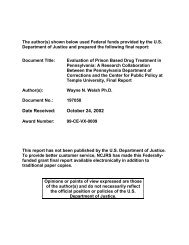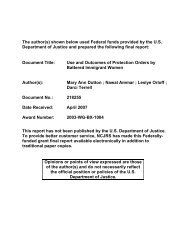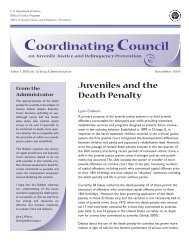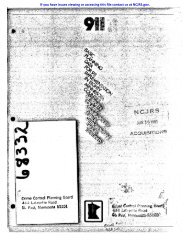Conflict Resolution Education - National Criminal Justice Reference ...
Conflict Resolution Education - National Criminal Justice Reference ...
Conflict Resolution Education - National Criminal Justice Reference ...
You also want an ePaper? Increase the reach of your titles
YUMPU automatically turns print PDFs into web optimized ePapers that Google loves.
Going Too Fast<br />
Eagerness to implement a program can lead<br />
to beginning without adequate discussion and<br />
preparation. Successful programs develop from<br />
careful planning and training before implementation<br />
is begun. Programs implemented without<br />
adequate preparation tend to be less successful<br />
and to hinder the implementation of future programs.<br />
People say, “We tried that one time but it<br />
didn’t work, so let’s not try now.”<br />
Going Without Support<br />
Programs usually fail when administrators and<br />
faculty have no knowledge of or do not support<br />
“interest-based” conflict resolution approaches.<br />
Administrators and faculty who feel no responsibility<br />
for achieving the program’s goals will not<br />
help support the program.<br />
However, the commitment and support of the<br />
administration, faculty, and parents appear to be<br />
universal success factors for conflict resolution<br />
education programs.<br />
Administrative Commitment and Support<br />
Every successful conflict resolution education<br />
program enjoys leadership and support from both<br />
the school’s and the school district’s administration.<br />
Administrators provide leadership and support for<br />
programs in a variety of ways:<br />
♦ Using staff meetings and parent meetings to<br />
discuss programs and their benefits in relation<br />
to student/adult outcomes.<br />
♦ Participating in training and staff development<br />
programs.<br />
♦ Leading staff meetings and problem-solving<br />
sessions using conflict resolution processes.<br />
Pitfalls To Avoid<br />
87<br />
Selecting the Wrong Program and Trainers<br />
Failure to match the program to the school’s<br />
particular needs will result in problems. Successful<br />
implementation of a program at one<br />
school does not mean it will be the right program<br />
for every school. Selecting a trainer who is<br />
not qualified or who will not build the school’s<br />
training capacity will also create future problems<br />
in implementing and, more importantly, in sustaining<br />
a program.<br />
Failing To “Hang In There” for the Long Haul<br />
Abandoning a program when it gets difficult<br />
or seems to be in a logjam is a mistake. With so<br />
many other demands on teachers, counselors, and<br />
administrators, it is tempting to stop some of the<br />
more time-consuming activities that are not specifically<br />
academic in nature. However, true results<br />
from conflict resolution programs are seen only<br />
after some time has elapsed.<br />
Laura Otey, Administrator, K–12<br />
Austin Independent School District, Austin, Texas 2<br />
♦ Recognizing program success during assemblies,<br />
schoolwide announcements, parent-teacher association<br />
meetings, school board meetings, and on<br />
other occasions.<br />
♦ Making use of effective conflict management and<br />
the language of conflict resolution in the school<br />
and on the playground.<br />
♦ Teaching or co-teaching conflict resolution<br />
lessons in the classroom.<br />
Faculty Commitment and Support<br />
When the faculty have little knowledge of the principles<br />
and the processes of conflict resolution, a<br />
conflict resolution program is not likely to be sustained.<br />
If faculty are not involved in training and<br />
program development, they are not likely to accept<br />
responsibility for achieving the program’s goals.<br />
Behind every successful program is a core of faculty<br />
who believe passionately in the value of having



